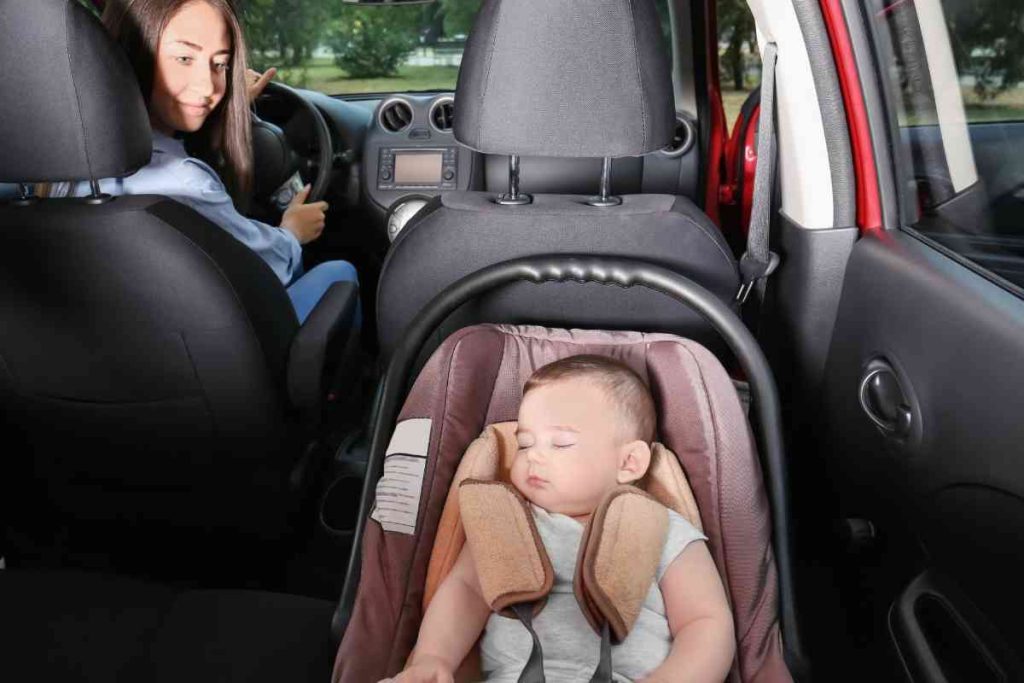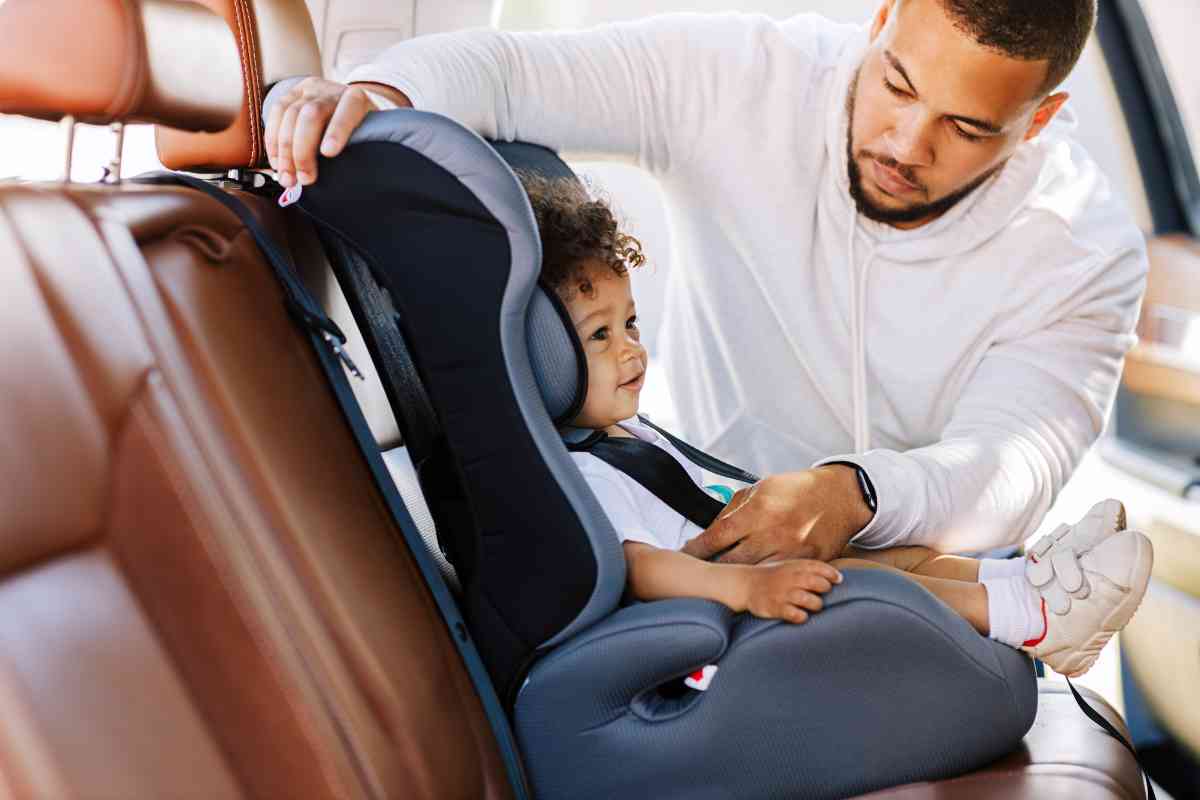The primary cause of child mortality in the US is motor vehicle accidents. We must ensure that children are adequately restrained in car seats, booster seats, or seat belts when they travel.
During the period spanning from 2008 to 2012, a distressing tally of approximately 850 children aged 14 years or below tragically perished as a result of motor vehicle collisions in North Carolina.
However, you can actively contribute to changing these statistics by prioritizing the safety of your children while driving.
We have compiled a comprehensive list of North Carolina car seat laws to assist North Carolinian parents in this endeavor.
Why Car Seat Laws Are Important?

The American Academy of Pediatrics staunchly advocates for the requirement of employing child restraints within motor vehicles.
According to their report, implementing such seating arrangements and safety systems has significantly reduced the probability of deaths among infants and children engaged in vehicular incidents.
The risk of mortality reduction spans a broad spectrum, with a notable 45 percent decline observed for kids aged between four and eight and an even more remarkable 71 percent decrease in infants.
North Carolina Car Seat Law on Forward-Facing Car Seat
In the state of North Carolina, a specific statute requiring the use of forward-facing car seats needs to be more present.
However, the esteemed National Highway Traffic Safety Administration (NHTSA) advocates that once children surpass the height or weight thresholds stipulated by their rear-facing seats, they should transition into riding in forward-facing car seats.
North Carolina car seat law states that children below the age of 8 and weighing less than 80 pounds must occupy a child restraint system that aligns with the safety standards mandated at the federal level.
Specifically, for young children aged 2 to 4 years, this entails availing themselves of a forward-facing car seat equipped with a harness and tether.
While North Carolina does not prescribe a definitive age criterion for employing forward-facing car seats, it is highly recommended that children continue to ride in such seats until they surpass the recommended limits.
Optimal compliance with this practice is encouraged to ensure the well-being of children.
Any violation of the forward-facing child seat protocol within North Carolina could incur a maximum fine of $25 for the driver in breach of the regulation.
North Carolina Car Seat Law on Rear-Facing Car Seat
North Carolina lacks a specific statute mandating the use of rear-facing car seats. Under the provisions outlined within the legal framework of North Carolina, it is mandated that all children under the age of 8 and weighing below 80 pounds must be diligently and effectively restrained within a suitable child restraint system.
Given the absence of a dedicated rear-facing child seat law in North Carolina, it is essential to adhere to the guidelines advocated by the esteemed American Academy of Pediatrics.
These guidelines assert that infants should be positioned in a rear-facing seat for optimal safety.
While the rear-facing car seat age remains unspecified in North Carolina law, the AAP strongly recommends that children continue to ride in rear-facing seats until they reach the age of 2.
The driver must uphold this guideline, as any violation may result in their liability. Under such circumstances, the driver may suffer a punitive measure as a monetary penalty reaching a ceiling of $25.
North Carolina Law on Leaving a Child in the Car
While North Carolina laws do not specifically address leaving a child unattended in a vehicle, realizing that such an act is dangerous is vital. Hazards such as heat stroke emerge as a significant concern.
The temperature inside a parked vehicle can rise rapidly, posing a grave risk to children. They can suffer heat-related illnesses due to their bodies heating very fast.
Moreover, there are additional perils to consider. Leaving a child alone in a vehicle increases the vulnerability to potential abduction, unintended vehicle movement, entanglement in seat belts or power windows, and other possible accidents that may occur within the confined space.
While the absence of a particular statute may introduce uncertainty, individuals who leave a child alone and unsupervised in a motor vehicle can still be subject to legal consequences under child endangerment laws.
Hence, it is highly recommended to avoid leaving a child unaccompanied in a vehicle, even for a fleeting interval, to prioritize and safeguard their overall safety and well-being.
North Carolina Car Seat Law on Ridesharing
According to child seat laws in North Carolina, individuals must place children below the age of 8 and weighing less than 80 pounds in an appropriate and fitting car seat.
However, the regulations do not explicitly address the utilization of child seats in ridesharing services such as Uber or Lyft.
The responsibility for ensuring the secure restraint of children primarily lies with the driver.
In such cases, the optimal course of action entails the driver or the parents/caregivers procuring a suitable child seat. Notably, infants ought to be positioned in a rear-facing car seat, as recommended for their safety.
A forward-facing car seat is deemed appropriate for young children aged up to 4 years.
Subsequently, between the ages of 4 and 7, a booster seat is advisable until the vehicle’s safety belt can snugly and adequately secure the child across their lap and shoulders.
North Carolina Car Seat Law on Taxis
Per the taxi child seat legislation in North Carolina, taxis must adhere to the stipulated car seat laws.
As elucidated by the University of North Carolina Highway Safety Research Center, taxis are mandated to possess a child passenger restraint system that is federally approved.
The onus falls upon the driver to furnish a suitable taxi child seat for all children below the age of 8 and weighing less than 80 pounds in North Carolina.
Noncompliance with this requirement incurs a maximum penalty of $25 and entails the assessment of two points on the driver’s license.
Taxis must have a car seat corresponding to the child’s age and weight, be it rear-facing, forward-facing, booster, et cetera. Ensure the proper seat installation per the instructions provided by the manufacturer to guarantee its secure placement.
Child Seat Belt Law in North Carolina
Under the child seat belt legislation established in North Carolina, all child passengers aged 8 to 16 years are mandated to be securely fastened with a seat belt.
Children with a minimum weight of 80 pounds, regardless of age, may utilize an adult safety belt provided it appropriately accommodates their physique.
Typically, a lap and shoulder belt are deemed suitable for a child when they reach a height of at least 4’9″.
Notably, the child seat belt law in North Carolina does not extend to vehicles manufactured before 1968 or light trucks and vans manufactured before 1972. Exemptions are granted in cases where a certified medical condition is present.
The driver is responsible for appropriately securing children with seat belts. Failure to comply with the seat belt requirements dictated by North Carolina regulations carries a maximum penalty of $25 for the driver.
When are Kids Allowed to Ride in the Front Seat in North Carolina?
Under North Carolina legislation, children under five weighing less than 40 pounds must occupy the rear seat in vehicles with active passenger-side front airbags.
However, careful guidance advises keeping children in the rear seat until they reach the age of 12 or 13.
You must recognize that rear-facing car seats cannot be installed in the presence of an active airbag, as it presents a grave risk of severe injury or fatality in a collision prompting airbag deployment.
While permissible, it is not necessarily recommended for a child to assume the front seat position unless specific criteria are met:
- The vehicle lacks a front passenger airbag.
- The vehicle possesses a front passenger airbag that can be deactivated via an on/off switch.
- The vehicle does not feature a rear seat.
- The child is five years old or older.
- The child weighs 40 pounds or exceeds that threshold.
Should a child be required to occupy the front seat, it is imperative to utilize an appropriate car seat or booster seat as deemed suitable.
However, it is crucial to note that rear-facing seats should not be employed in front of an active airbag.
Rear-facing car seats must consistently be confined to the rear seat unless the vehicle lacks a front passenger airbag or possesses the capability to deactivate the said airbag.
For forward-facing children secured in harness seats or booster seats in the front seat, it is advisable to adjust the position of the front seat to create an increased distance from the airbag or deactivate the airbag through the designated on/off switch should the vehicle be equipped with such a mechanism.
Children, irrespective of age, are permitted to occupy the front seat of vehicles devoid of a rear seating arrangement, such as single-cab pickup trucks or two-seater sports cars.
However, installing rear-facing seats is only permissible if the vehicle in question lacks an airbag or possesses an airbag that can be rendered inoperative.
Related:

